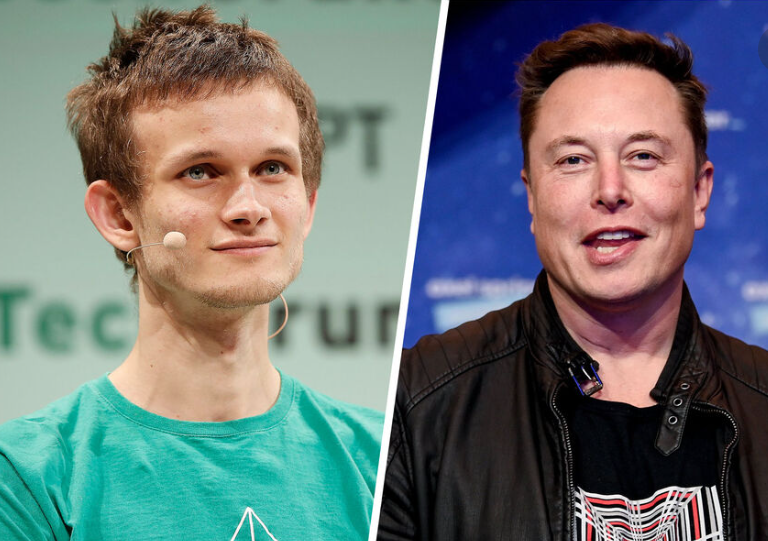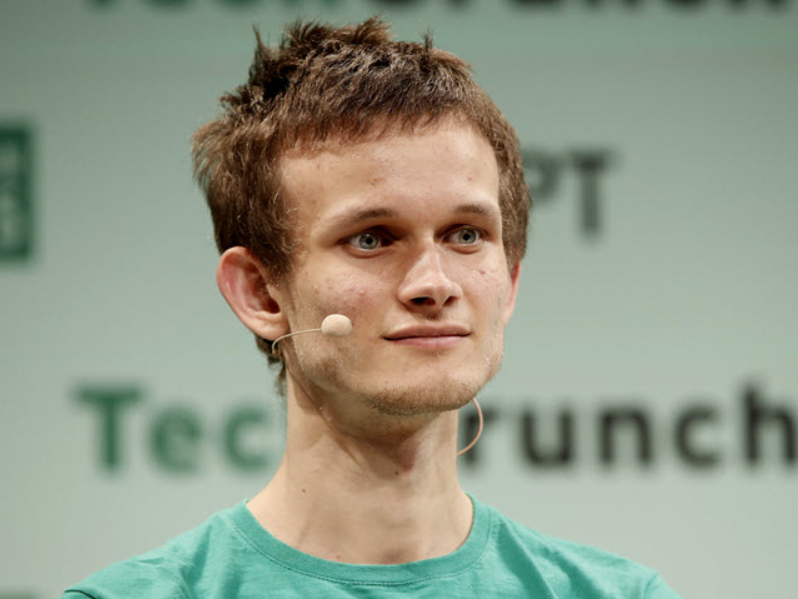?? We have already written about Vitalik Buterin, but his figure is so complex that it cannot be confined to just one article. On one hand, he is a genius and visionary, the creator of Ethereum, without whom there would be no DeFi or NFTs. On the other hand, he is a person whose ideas spark debates among both supporters and critics. Some call him the “messiah of cryptocurrencies,” while others label him a “dangerous utopian.”
Moreover, Buterin actively speaks at international conferences and is considered one of the leading intellectuals in the blockchain industry. On his X network, he regularly comments on current events and shares his vision for technology development.

Childhood and Early Years
Vitalik was born in 1994 in Kolomna, Russia, but moved to Canada with his family at the age of six. From an early age, he was considered gifted: he solved math problems twice as fast as his peers, and by third grade, he could mentally multiply three-digit numbers.
At school, he did not stand out in sports or social activities, but he showed an early love for computers. According to recollections, the first programming language he mastered was C++.
Encounter with Cryptocurrency
Vitalik described his first encounter with Bitcoin as a “lightning strike.” At 17, he read about blockchain for the first time and became fascinated with the idea. The technology captivated him so much that he began writing articles about Bitcoin and earning his first BTC… through translations and analysis!
Creation of Ethereum
In 2013, Buterin published the Ethereum “white paper,” proposing a next-generation blockchain — not just for money, but also for applications. This concept laid the foundation for decentralized finance (DeFi), NFTs, and smart contracts.

Ethereum was launched in 2015 and quickly became the second-largest cryptocurrency by market capitalization.
Interesting Facts about Buterin
- Prodigy: by age 4 he could read encyclopedias, and by 7 he was writing his own programs.
- Multilingual: fluent in English, Russian, and Chinese.
- Philanthropist: donates millions to scientific research. In 2021, he donated over $1 billion in cryptocurrency to fight COVID-19 and support India.
- Humble billionaire: unlike many crypto tycoons, he leads a simple lifestyle.
- Irony: his X (formerly Twitter) is full of jokes, memes, and sarcasm about the future of blockchain.
- Philosopher: interested not only in technology but also politics, philosophy, and even immortality.
Most Controversial Decisions and Quotes

On 90% of crypto projects: “Most of them are garbage and will disappear. And that’s okay.”
- On the future of humanity: “Cryptocurrency may be just the first step toward radical societal change.”
- On his mission: “I don’t want to make money. I want to change the world.”
On centralization of power: despite advocating decentralization, critics accuse him of having too much influence on Ethereum’s development.
- On technical decisions: Ethereum’s move to Proof-of-Stake sparked much debate — supporters cite environmental and sustainability benefits, while critics point to centralization risks and vulnerabilities.
These statements and actions reinforce the sense that Buterin walks a fine line between genius and provocateur.
Why He’s Controversial
Some see him as a hero challenging the banking system. Others view him as a naive idealist whose experiments could disrupt the established financial world. Skeptics argue that Ethereum is too complex, vulnerable, and hype-driven. Supporters see it as the foundation of the future internet.
Buterin himself admits that his mission is less about creating “new money” and more about giving people tools for freedom. But where there is freedom, there is chaos. That is why his figure sparks so much debate.
Disputes with Elon Musk

Disputes with Elon Musk
His public exchanges with Elon Musk deserve special attention. Vitalik and Elon have traded sharp comments regarding blockchain scalability and the role of AI. Musk enjoys provocation and sarcasm, while Buterin responds calmly and analytically, though he sometimes takes a chance to poke back. These discussions fuel public interest — when two brilliant minds collide, the crypto community listens closely.
Impact on the Crypto World
Today, Buterin is called “Satoshi Nakamoto 2.0.” If Bitcoin is digital gold, Ethereum is a whole platform for innovation.
Today, Buterin is called “Satoshi Nakamoto 2.0.” If Bitcoin is digital gold, Ethereum is a whole platform for innovation.
Thanks to his ideas, DeFi, NFTs, DAOs, and other phenomena shaping the digital economy of the future have emerged.
Conclusion
One can write about Vitalik again and again, because his figure is multi-layered, like blockchain itself. He is both an idealist and a pragmatist, a dreamer and an engineer, a philosopher and a programmer. His journey reminds us that technological revolutions are driven not by corporations, but by people who dare to think differently.
All content provided on this website (https://wildinwest.com/) -including attachments, links, or referenced materials — is for informative and entertainment purposes only and should not be considered as financial advice. Third-party materials remain the property of their respective owners.


